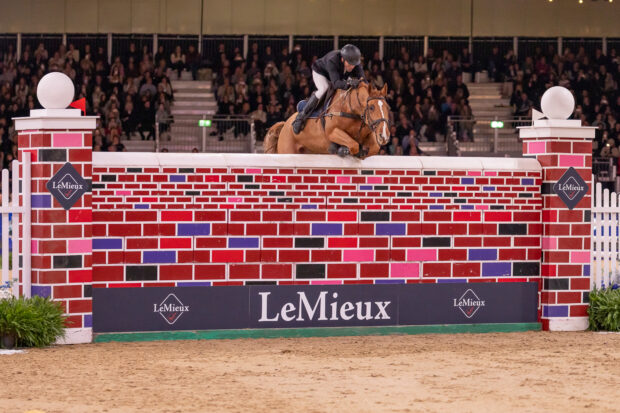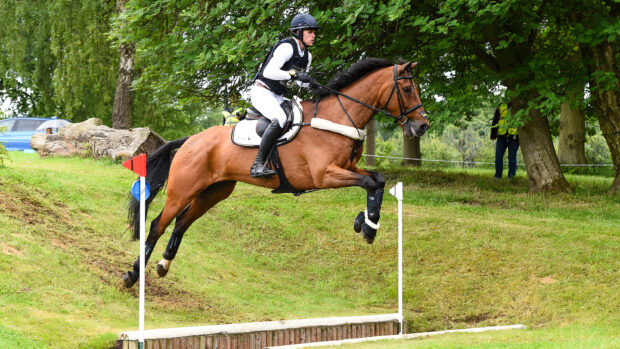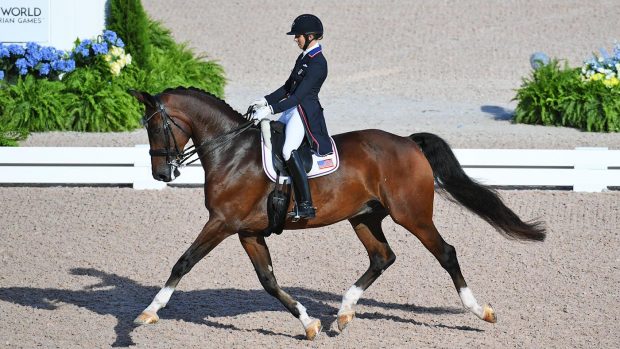The question of how to help aspiring upper-level cross-country course-designers, and the challenges associated, has come into focus.
The subject has popped up in various guises through the FEI rules revision process. Last autumn, Ian Stark revealed he would be retiring from designing at the end of 2024, while Mark Phillips said he was ramping down in his H&H column in November. Although that leaves a number of highly experienced top-level designers, it is a timely talking point.
H&H spoke to several designers, including Mike Etherington-Smith, Helen West and David Evans. Passion and the sense of reward it brings were among the reasons they love it; costs and time were two common factors among the challenges.
Suggestions to help those coming through included tapping into the huge knowledge garnered by the current experienced designers so that is not lost, and support for the role of assistant designers – meaning they have to be on site when fences are laid out, plus an apprenticeship or scholarship programme for aspiring designers.
“I am hugely passionate about the course-design side of things and 100% want to do more of that, but it’s very hard to get into,” said Helen West, who as a level three designer, can design up to and including four-star.
Helen, who has competed to top level, became involved through her job at Bicton, which she said was very supportive and also gave her a base at which to start designing.
“I very quickly got the bug, as my event riding career was winding down and I missed the excitement, adrenaline and buzz – and I got those things from course-designing,” she said, adding that mentoring from Eric Winter and Mark Phillips has been “hugely beneficial”, for which she is “enormously grateful”.
Helen was a recipient of the Bill Thompson bursary, which enabled her to get a first step on the ladder. She has spent a lot of money and time travelling to learn from course-designers – steps that cannot be missed, but which she says are challenges.
In 2023, the European Equestrian Federation (EEF) and several nations supported the idea of mandating an assistant cross-country course-designer at four- and five-star events. This was postponed, but is likely to be discussed again this year.
There is already mentoring among course-designers, and the role of assistant course-designer is now part of the FEI education system. Reactions to making an assistant an official requirement was mixed – while broadly positive, those H&H spoke to could also understand the extra pressures this could have on organisers when budgets are already tight.
There were also mixed feelings about the mandatory rotation of course-designers. The rule, which came into effect in 2023 but does not apply retroactively, means designers cannot officiate at the same venue for more than six consecutive years at four-stars and championships, and eight years at five-stars. This too was introduced with the intention of encouraging more new designers, but there are strong concerns about the unintended consequences.
“I don’t think rotation is going to achieve what is expected, as most of course-design is about feel,” said Mike, who has been designing championship and five-star tracks for decades. “It’s not like passing A levels; yes, you’ve got to demonstrate competence and ability, but it’s not something you can learn from a book. The risk of insisting and mandating a certain number of years is that it’s going to become more clinical and more designing out of a book.
“For me, the ideal is to find, source, encourage and then make possible the opportunities for good up-and-coming course-designers, who have flair, feel and imagination. I don’t think the sport should be regulating who organisers can and cannot engage, or how long for.”
He added: “We all have the best interests of the horses and riders at heart. We’re all on the same side. It’s all about pitching things at the right degree of difficulty. It doesn’t matter whether that is a BE100 or the Olympic Games.
“I had some really good advice as I was going through and some cracking opportunities. If I can repay that to the up-and-coming people, I think we have a responsibility to do so.”
Helen said: “I can 100% see the need to rotate to give us opportunities. But I can also understand how, as a designer, it takes you three, four years to really get to grips with the terrain and how it rides – you learn so much. And it’s really then for the next few years that you can do your best work, and you’ve built up that relationship with the organising committee, which is really important.
“I can understand with my organiser hat on why you want to keep your people – it’s a tricky one.”
She added that is why she believes it’s key for the FEI to build up the assistant role.
British Eventing chief executive Rosie Williams told H&H the organisation is currently recruiting for a head of education and training, who will support development of all its important officials.
“In relation to course-designers and builders we have begun discussions with the FEI on how we link the FEI work with our domestic work, and all the considerable elements required to become a course-designer and builder,” she said. “These are highly skilled people who play a very important role and build their own businesses around their skills, so it’s not as simple as having more people doing it.”
An FEI spokesman told H&H the monitoring of eventing officials, alongside the education system, “remains a priority, with a keen eye on the balance between the number of officials and the global demand for events”.
“The eventing committee and the FEI continuously review this aspect across all disciplines, adapting to evolving trends where venues often host multiple categories,” he added.
- What do you think? Send your thoughts to hhletters@futurenet.com, including your name, nearest town and country, for the chance that your letter could appear in a forthcoming issue of the magazine
You might also be interested in:

Subscribe to Horse & Hound magazine today – and enjoy unlimited website access all year round

13 expert tips from Pippa Funnell including take your time, steer with your eyes, and repeat, repeat, repeat

Piggy March: ‘It’s vital we keep eventing in the Olympics – even if that means putting cross-country last’
Horse & Hound magazine, out every Thursday, is packed with all the latest news and reports, as well as interviews, specials, nostalgia, vet and training advice. Find how you can enjoy the magazine delivered to your door every week, plus options to upgrade your subscription to access our online service that brings you breaking news and reports as well as other benefits.




